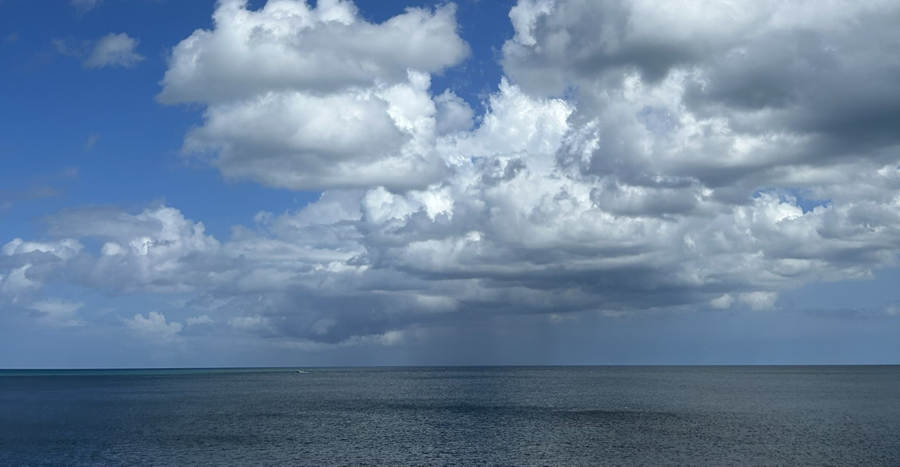Date & time
1 p.m. – 3 p.m.
This event is free.
J.W. McConnell Building
1400 De Maisonneuve Blvd. W.
4TH SPACE
Yes - See details
 Clouds over the Caribbean sea, Cabo Rojo. Michele Fiedler
Clouds over the Caribbean sea, Cabo Rojo. Michele Fiedler
This is the first event from the 2025-2026 CISSC Caribbean Studies Working Group:
This working group brings together diverse faculty, graduate students, and interested community members with personal investments in the Caribbean. As scholars working across various disciplines and languages, whose research is either situated in the region or engages critical insights from the region and/or the diaspora, we are concerned with how the Caribbean has been constituted, imagined, and (un)bounded, and what Caribbean Studies can offer for alternative futures.
The Working Group participants have already been confirmed for this sesssion. Those attending by Zoom can use this link.
Interested in learning more about the Working Group and how to get involved?
Anyone interested is encouraged to drop by at 3:00 PM to speak with the organizers.
Send them to info.4@concordia.ca
Caribbean Studies Working Group, a working description
Disciplinary formations may take different routes in the global north (where the bulk of scholarship is funded, produced and often used to replicate power and difference) and the global south (whose material and epistemological formations shape different modes of enquiry and where the colonial past still haunts the present). For instance, colonial voyages of ‘discovery,’ resource extraction, and the violence of plantation societies shaped by scientific racism, have left lasting legacies which live on in developmentalist approaches to the Caribbean (e.g., tourism, resource extraction, travel writing). Caribbean peoples are keenly aware of these processes including the economic and political interests brought to bear on colonial knowledge-making, which continue to influence the terms under which ideas of the region are produced. Thus finding paradigms outside of the borders of institutionalized Euro-American disciplinary knowledge and its colonial registers is imperative for the Caribbean scholar, as Barbadian writer George Lamming noted in his essay “Western Education and the Caribbean Intellectual” (2000). It is part of a wider project of self-determination, to ‘emancipate yourselves from mental slavery’ (as Bob Marley sang), to renew knowledges considered marginal, to recover histories and geographies rendered obscure, and to ground approaches in the materiality of societal struggles. In addition, subjectivities, knowledge and place-making have been particularly complex processes in the Caribbean — making space for submerged cultural practices and fluidities of relations, while negotiating European norms embedded within nearly every sphere of society. Due to these complexities, Caribbean studies cannot not be siloed by disciplines, nor can the archipelago be contained by area studies. Instead, Caribbean studies are intrinsically interdisciplinary, moving across borders, drawing from and combining knowledges from literary studies, geopolitics, eco-humanities, the arts, musicology, racial justice, agricultural history, and post/de/anti-colonial theories.
Please consult the CISSC Website for the most up to date version of the Working Group.
© Concordia University